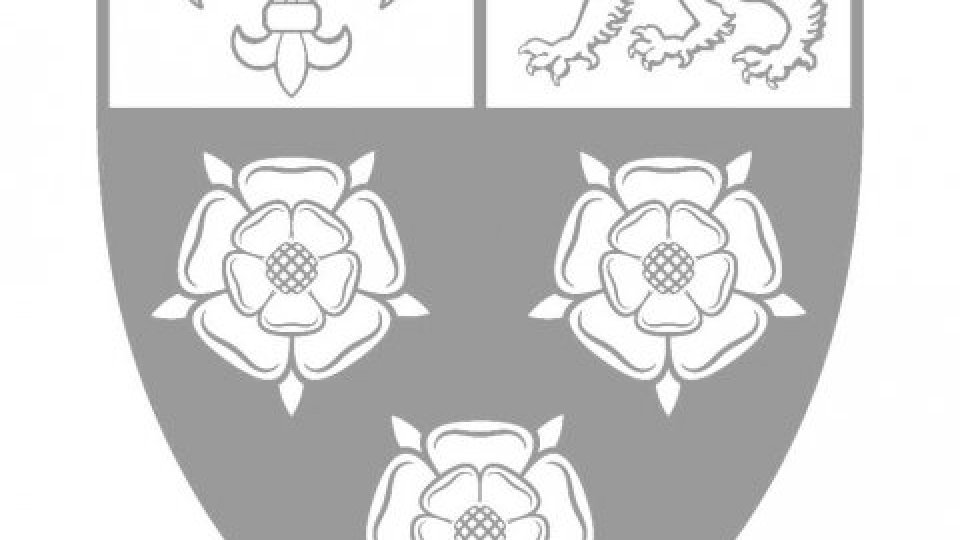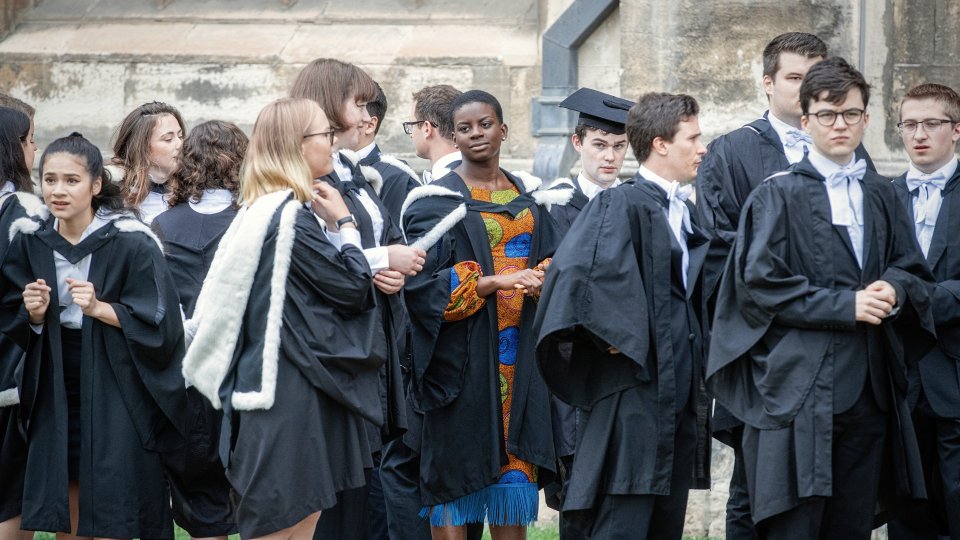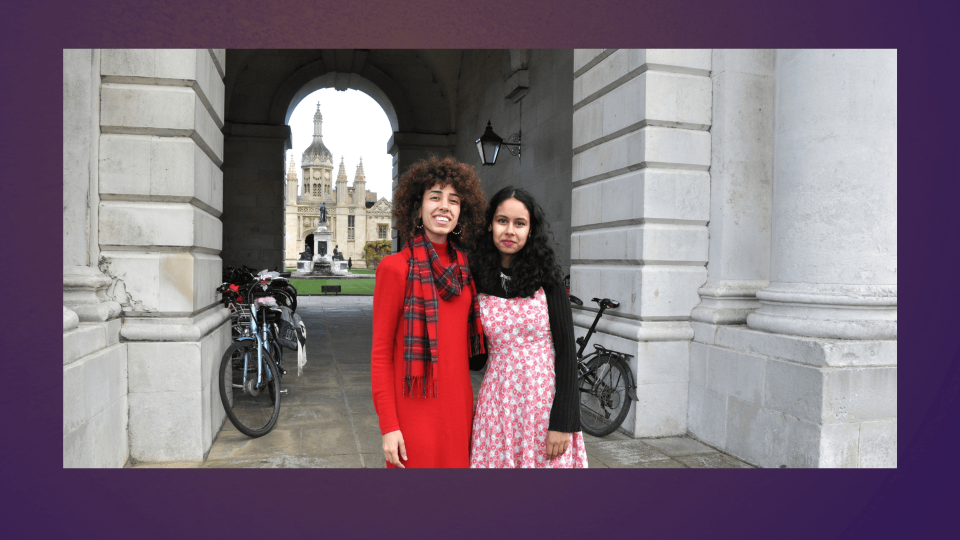There are three broad categories of financial support:
1. support with tuition fees and maintenance/living costs (i.e. the costs every student needs to meet in order to join the College and the University);
2. support with additional or unexpected costs or a loss of funding (i.e. sudden and unforeseen changes in financial circumstances); and
3. grants to engage in activities which further enrich students’ time at University (i.e. support with the additional costs of engaging in extracurricular activities)
Forms of financial support within the first category differ depending on your fees status (i.e. Home or International); forms of financial support within the second and third categories differ depending on your individual circumstances.
The College is also proud to offer certain more targeted forms of support to a small number of students, Turing Support Students, enabled by donations made for this purpose by alumni. These are students who have been recognised during the Admissions process as not having had access to many of the resources and opportunities available to most other students throughout their educational history.
One of the forms of support that we are able to offer such students is free accommodation, in King’s, for the duration of the Christmas and Easter vacations. This can help students to work more efficiently, and can often remove sources of stress, which can interfere with their studies, and/or well-being. This support is available to any Access Student who can show that they do not have suitable accommodation to return to during the holidays, that is, accommodation that is conducive to efficient study. This might be because they share their rooms with siblings; because of a breakdown in familial relations, making returning home stressful; due to mental or physical health issues, or financial reasons. Provision of such accommodation is not automatic, and must be arranged via the Admissions Tutor. If you are eligible for this form of support, you will be notified in advance of your coming to Cambridge in October.
There are two main costs to studying at the University: tuition fees (i.e. the fees paid to the University and College towards the cost of teaching) and living costs (i.e. the money you will need to spend on rent, travel, food, etc.).
Students with Home fee status are eligible for help with both of the above costs in the form of loans (for tuition fees and maintenance) and a non-repayable bursary from Cambridge (if eligible based on assessed household income). All students can access a tuition fee loan, and tuition fees are the same for all students and all courses (see here and here). All students can access a maintenance loan to help cover living costs (see here), although the amount available depends on your household income; a minimum amount is available to all students and it is expected that students from higher income households are supported by their family (see here). A Cambridge bursary is available to students from lower income households (see here and here).
Students with International fee status are liable for the full cost of tuition fees (including a separate College fee) but may be entitled to apply for scholarships or studentships from the Cambridge Trust and from King’s. All students are liable for both the University tuition fees, which vary by subject, and the College Fee, which is the same for all students (see here and here). Students are entitled to apply for a scholarship from the Cambridge Trust (see here) and a studentship from King’s (only offer holders are invited to apply) to help with the cost of tuition fees and/or maintenance costs (see here). Only a very limited number of King’s studentships are available; competition for funding is very intense, and we cannot guarantee that you will be successful.
Both the College and the University have funding to help students who, when here in Cambridge, find themselves in unexpected financial difficulties. The University’s support (see here) includes the Undergraduate Financial Assistance Fund, The Realise Fund, and the Crane Fund. King’s can further offer student support grants, study-related expenses grants, and medical grants. Recently, the College has also received funding to offer vacation grants, which support students who are distanced from their families with the costs of accommodation over one or more of the vacation periods. Although the College and University expect students to ensure that they have sufficient funding available for the duration of their studies before coming to Cambridge, the College is sympathetic that circumstances can change and is proud of the financial support which it is able to offer its students to help them successfully complete their course of study.
King’s also offers a broad range of grants to enable students to engage in activities which will further enrich their time in Cambridge. During the 2024–25 academic year, the King’s grants available to undergraduate students include:
· travel grants, to help and encourage students to travel overseas for educational purposes;
· equipment grants, to help first-year students purchase items of equipment that would help them benefit fully from their times at King’s;
· cultural grants, to help and encourage students to pursue cultural projects or to perform at the Edinburgh Fringe festival in the long vacation;
· music grants, to help and encourage students to undertake music lessons, including singing, either as part of a music degree or as an extra-curricular activity;
· sports grants, to help with the costs associated with playing sport at the highest level within the University;
· language grants, to help and encourage students to undertake a language course run by the Cambridge University Language Centre; and
· theatre and exhibition ticket grants, to provide students with the opportunity to attend the theatre and exhibitions outside of Cambridge.
Some years ago, the College received some generous donations that allow it to provide additional support to a small number of students who have not had the same educational, or financial, resources available to them throughout their educational lives. These students may therefore benefit from additional support in the lead up to, and following the start of, their studies at King’s. These donations allow the Admissions Tutor to each year identify around 30–35 students to receive tutoring and mentoring throughout their A levels, and around 20 students to attend the College’s Bridging Programme, a one-week residential that combines range of academics sessions with activities to help students get to know Cambridge and King’s and to bridge the gap between secondary school/sixth form and higher education. From these students, the Admissions Tutor also identifies 10–12 “Turing Support Students” (capped due to limited funding) who are eligible for a range of additional, more targeted support, throughout their degrees.
Turing Support Students are students who have, and are likely to continue to face, the most significant socio-economic barriers to thriving at King’s, as evidenced by contextual data supplied during and after the admissions process (e.g. free school meal status, low household income, educational disruption, disability, caring obligations, difficult home circumstances, etc.). The additional support offered to Turing Support Students includes first-year tutoring via The Profs, a technology grant, a summer internship grant, and free accommodation in College over the Christmas and Easter vacation if their home environment is not conducive to study and/or their wellbeing. The College is extremely proud that it can provide this additional support to students who have not had access to the same resources and opportunities as others up until this point.





